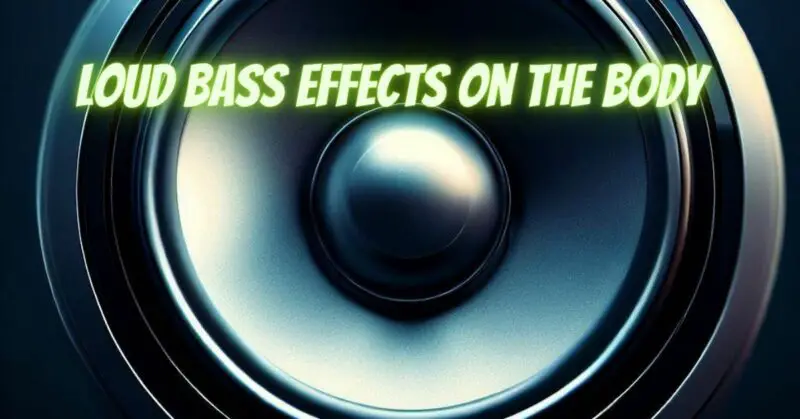The deep, pounding bass of music at a live concert, in a nightclub, or from a powerful audio system can be thrilling, but it’s not just our ears that feel the impact. Loud bass has a profound influence on the human body, evoking both physical and emotional responses. In this article, we’ll explore how loud bass affects the body and why it has such a powerful and sometimes surprising impact.
1. Vibrational Resonance
At its core, the sensation of loud bass stems from the physical vibrations it creates. Sound is a mechanical wave that propagates through a medium, such as air. When low-frequency sound waves (bass) are particularly powerful, they can cause the air and, by extension, nearby objects to vibrate in resonance with the frequency of the sound.
2. Physical Sensations
- Tactile Response: The vibrations caused by loud bass are often strong enough to be felt by the body. This tactile response can manifest as a tingling sensation, a thumping in the chest or abdomen, or even vibrations in extremities like hands and feet.
- Chest Thump: One of the most distinctive sensations of loud bass is the thumping feeling in the chest, which is sometimes referred to as “chest thump” or “bass drop.” This occurs when the bass frequencies resonate with the body’s own natural frequencies, creating a visceral and immersive experience.
3. Emotional and Psychological Impact
- Excitement and Energy: Loud bass has a stimulating effect on the body, often leading to increased heart rate, heightened alertness, and a sense of excitement. It can be the driving force behind the energetic and immersive atmosphere of a concert or nightclub.
- Euphoria: For many people, the combination of loud bass, rhythmic beats, and the collective energy of a crowd can induce a state of euphoria and emotional release. This is why music festivals and dance clubs often feature powerful bass-heavy sound systems.
4. Potential Health Considerations
While the physical and emotional responses to loud bass can be exhilarating, there are also potential health considerations:
- Hearing Damage: Prolonged exposure to high-volume bass can lead to hearing damage and tinnitus (ringing in the ears). It’s crucial to protect your hearing with earplugs or by taking breaks in loud environments.
- Physical Discomfort: In extreme cases, the intense vibrations from loud bass can lead to physical discomfort or even injury. Subwoofers in cars, for example, have been known to cause discomfort or pain when turned up to extreme levels.
- Emotional Overload: For some individuals, the powerful emotional impact of loud bass can be overwhelming, leading to anxiety or discomfort. It’s essential to be aware of your own emotional and physical limits when exposed to loud bass.
Loud bass has a multifaceted impact on the human body, ranging from the physical vibrations felt in the chest and limbs to the emotional and psychological responses that can include euphoria and heightened energy. While these effects are part of what makes music and sound experiences so captivating, it’s crucial to approach loud bass with care and consideration for your own health and comfort. By understanding the science behind the sensations, you can fully appreciate the dynamic and immersive world of bass-heavy music without compromising your well-being.

